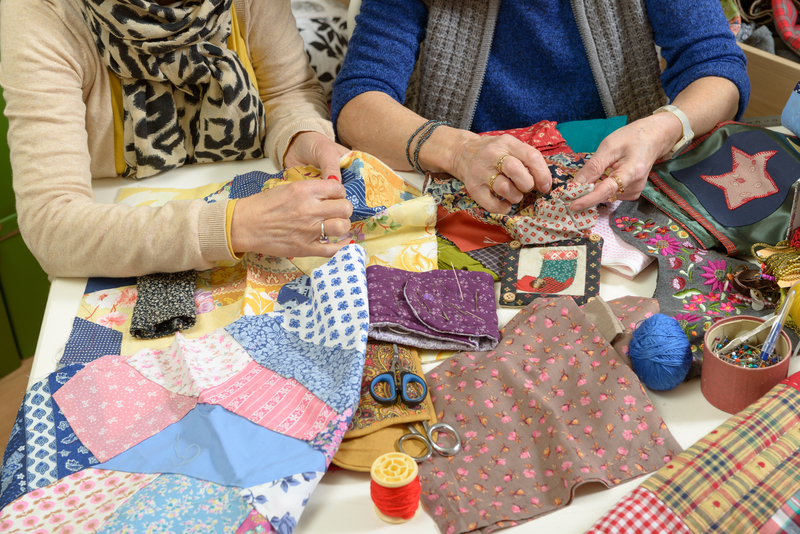Transformative Tips for Home Waste Prevention
Waste generation is one of the most pressing environmental issues in modern households. With a little attention and commitment, every home can significantly reduce its waste footprint, save money, conserve resources, and make a positive environmental impact. In this comprehensive guide, we share transformative tips for home waste prevention that you can start implementing today. Whether you're new to the green living journey or looking for advanced strategies, these actionable insights will set you on the path to a more sustainable lifestyle.
Why Home Waste Prevention Matters
Preventing waste at home is essential for both environmental and economic reasons. Landfills are filling up, pollution is increasing, and resource extraction continues to strain our planet. When we prevent waste, we conserve resources, reduce greenhouse gas emissions, and support a healthier planet for future generations. Moreover, home waste prevention strategies can help households save money by encouraging more mindful consumption and reducing the need for constant replacements or disposables.

1. Adopt a Waste Audit Mindset
The first step in any transformative waste reduction journey is understanding current waste habits. Conduct a thorough waste audit to identify areas where you generate the most trash. This knowledge leads to informed choices in your quest to prevent household waste.
How to Perform a Home Waste Audit
- Collect your household waste for a week, separating recyclables, compostables, and landfill items.
- Analyze which items appear most frequently in your trash.
- List the top five waste categories (e.g., food scraps, packaging, paper, plastics, single-use items).
- Identify patterns and set goals to reduce waste in these categories.
A waste audit is a powerful eye-opener and foundation for transformative waste prevention at home.
2. Rethink Food Consumption and Storage
Food waste constitutes a significant portion of household trash. Home food waste prevention is vital for environmental sustainability and budget-conscious living. With some planning and creativity, you can keep more food on your plate--and out of the bin.
Practical Food Waste Prevention Tips
- Plan meals and shopping to buy only what you need.
- Store food properly to extend freshness (e.g., use airtight containers, understand best before vs. use by dates).
- Embrace leftovers by incorporating them into new meals or freezing them for later.
- Create an "eat me first" shelf for products nearing expiration.
- Compost unavoidable food scraps instead of sending them to the landfill.
Developing a mindful approach to food--from purchase to plate--leads to significant reductions in household waste and supports a more sustainable kitchen.
3. Choose Reusable Over Disposable
A simple yet highly effective strategy for home waste prevention is switching from disposable to reusable alternatives. This transition minimizes landfill-bound trash and often saves money in the long run.
Swap These Disposables for Reusables
- Reusable grocery bags instead of single-use plastic bags.
- Cloth napkins and towels instead of paper versions.
- Stainless steel or glass water bottles in place of bottled water.
- Bamboo or metal straws rather than plastic ones.
- Sustainable food containers and beeswax wraps instead of plastic wrap or sandwich bags.
Building a collection of quality, reusable products will transform your waste prevention success at home and reduce your reliance on single-use items.
4. Buy in Bulk and Mind The Packaging
Packaging waste contributes substantially to overall household trash. By buying in bulk and selecting products with minimal or compostable packaging, you can make a big difference in your home's waste output.
Bulk Buying and Packaging Reduction Tips
- Shop at stores that offer bulk bins for grains, nuts, legumes, and snacks using your own containers.
- Choose products in recyclable or compostable packaging whenever possible.
- Opt for concentrated or refillable versions of cleaning and personal care products.
- Avoid single-serving packages in favor of larger, portionable containers.
- Say no to excessive marketing or holiday packaging that often goes straight in the trash.
These practices reduce packaging waste at the source--a critical aspect of effective home waste reduction.
5. Recycle Right
While recycling is not the sole answer to waste, it remains a crucial component of responsible home waste management. However, many households make mistakes that inadvertently contaminate recycling bins.
Top Recycling Best Practices
- Follow your local recycling guidelines to ensure only acceptable items are placed in bins.
- Rinse out bottles, cans, and food containers to avoid contamination.
- Avoid placing plastic bags, Styrofoam, and food-soiled items in the recycling unless specifically accepted.
- Stay updated about curbside recycling or nearby drop-off facilities for unique items like electronics, batteries, or hazardous materials.
- Encourage everyone in the household to be diligent about recycling habits.
Proper recycling supports the circular economy and contributes to overall waste prevention at home.
6. Compost Organic Waste
Food scraps and yard waste should never be landfilled. Composting is not only simple but profoundly transformative for reducing waste at home and enriching your garden soil.
Getting Started with Home Composting
- Set up a backyard compost bin or a worm bin for smaller spaces.
- Add kitchen scraps (vegetables, fruits, coffee grounds, eggshells) and yard waste to your compost.
- Avoid meats, dairy, and greasy foods unless your compost system allows.
- Maintain a balance of "greens" (wet, nitrogen-rich items) and "browns" (dry, carbon-rich material) for healthy composting.
- Use finished compost in gardens or as a houseplant fertilizer.
Home composting can divert up to half of household waste from the landfill and turns it into something beneficial for your home.
7. Repair, Repurpose, and Donate
Not all unwanted items need to end up in the trash. Consider if something can be repaired, creatively repurposed, or donated for a new life elsewhere.
Extending the Life Cycle of Household Goods
- Repair clothing, electronics, and furniture instead of replacing them.
- Repurpose glass jars, bottles, or containers for storage or decoration.
- Donate usable items--books, clothes, appliances--to local charities or thrift shops.
- Host a swap party or use neighborhood sharing apps to gift or exchange items.
- Get creative with upcycling projects for home decor or crafts.
Focusing on repair and reuse keeps materials circulating longer, supports community, and cuts down dramatically on home waste.
8. Make Smart Purchasing Decisions
Preventing household waste starts with conscious consumerism. Every purchasing decision affects the waste generated at home.
Guidelines for Waste-Preventive Shopping
- Buy quality products designed for longevity, not planned obsolescence.
- Support local businesses and products with minimal transportation footprints.
- Prioritize companies with eco-friendly packaging and take-back programs.
- Ask yourself if you truly need the item before purchasing.
- Download your bills and subscriptions digitally to avoid unnecessary paper waste.
Every dollar you spend is a vote for the kind of world you want to create. Mindful shopping is foundational to home waste reduction and global sustainability.
9. Employ Green Cleaning Techniques
Conventional cleaning products create significant waste through disposable wipes, plastic bottles, and harsh chemicals. By shifting to green cleaning, you reduce waste and create a healthier living space.
Eco-Friendly Cleaning Tips
- Mix DIY cleaners using vinegar, baking soda, and citrus for most household chores.
- Choose concentrated refills or cleaning tablets in compostable packaging.
- Use reusable microfiber cloths, mops, and sponges.
- Repurpose old t-shirts or towels as cleaning rags.
- Avoid single-use cleaning wipes and harsh chemical sprays.
Adopting sustainable cleaning habits drastically reduces your household's plastic and chemical waste footprint.
10. Get the Whole Family Involved
Waste prevention is most effective when it's a team effort. Educate family members about waste reduction, set shared goals, and celebrate successes together.
Tips for Engaging the Household
- Hold regular family meetings to review waste prevention progress and brainstorm new ideas.
- Assign specific tasks to kids and adults alike--composting, recycling, food storage.
- Create fun challenges (such as a waste-free week) to encourage participation.
- Share the benefits of waste prevention, from cost savings to environmental stewardship.
- Reward collective achievements with eco-friendly treats or activities.
Making waste prevention a household priority ensures that sustainable habits last and multiply across generations.

Benefits of Transformative Home Waste Prevention
- Environmental Impact: Less waste sent to landfills, reduced greenhouse gases, and preserved natural resources.
- Cost Savings: Buying less, reusing more, and composting can lead to significant household savings.
- Healthier Home: Fewer disposable items and chemicals contribute to a cleaner, healthier living space.
- Community Engagement: Sharing, donating, and swapping build community and support those in need.
- Personal Fulfillment: Practicing sustainability brings a sense of purpose and responsibility.
Conclusion: Small Steps Lead to Big Change
Adopting transformative tips for home waste prevention doesn't mean perfection overnight. It means making intentional choices--one step at a time--to reduce your household's environmental impact. Whether you're starting by conducting a waste audit, switching to reusables, composting kitchen scraps, or inspiring your family to join the effort, each action moves you closer to a waste-free home.
Start today, share these home waste prevention strategies with your neighbors, and become a champion for sustainability in your community. The planet--and your future self--will thank you for it.